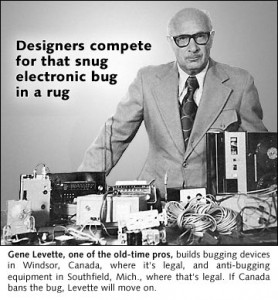
In years past, bugging a house meant introducing new electronics in order to gather information. These days, the same information can be gathered simply by owning a TV.
Samsung’s new voice-activated television comes with the warning that the TV can at any point in time record the conversations occurring around it. Furthermore, according to the Privacy (or lack thereof) Policy, Samsung can then share this with advertisers, using information on the owner’s likes and dislikes gleaned from the conversations in order to more accurately target their customers.
This eavesdropping television is just the latest in a string of privacy-encroaching technology. Concern has been growing lately over privacy policies of apps that many believe to be overstepping the bounds of what kind of information-gathering should be allowed.

This concern over privacy invasion, as well as the amount of ambivalence that many people have towards the data-gathering, raises important questions about the importance of privacy and how much privacy people are willing to give up in exchange for what they want from technology. My initial reaction to the privacy policy for Facebook Messenger was that it was asking for too much access to my information, but after a few weeks I downloaded the app anyways. Are we entering an age where we do not care who has what information as long as we get the apps we want? Should we care in the first place?
Technology is blurring the lines between what is considered an invasion of privacy is what is simply a part of interacting with technology.